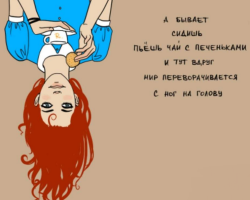Why do children's age crises arise and how to help the child cope with them - you will find advice to parents in our article.
Careful parents always notice the slightest changes in the mood and behavior of their child. If suddenly you see that your children for no particular reasons begin to behave differently that is usual - to be capricious, disobedience, to enter into conflicts with peers, you should not panic. Most likely, the problem is not in the poor nature of the child or education gaps - simply certain stages of development of children are accompanied by the so -called age crises.
Content
- What is an age crisis?
- The crisis of the newborn (6-8 weeks)
- Crisis of year-old age (12-18 months)
- Crisis of 3 years
- Crisis 7-8 years old
- Perthetic crisis (13-14 years old)
- Crisis 17 years old
- Video: Age crises in children from 0 to 17. Psychologist's advice to parents, how to smooth out transitional periods
What is an age crisis?
The development of a person from the moment of birth to adulthood is a diverse process that is incessant for a minute, including physiological changes in the body, the accumulation of knowledge and ideas about the world, the formation of skills, as well as psycho -emotional development of the individual.
- Stable periods of child development are characterized by gradual education, accumulation of information, the formation of skills, skills and reactions to various situations of the surrounding space.
- Crisis periods are often accompanied by sharp changes, both in the physiological and mental development of children with sharp splashes of accumulated tension.
Although such moments can cause a large number of negative emotions, the very concept of “crisis” does not carry negative coloring - adults need to learn to perceive turning points as a necessary stage of growing up a child. The calmer and more confidently the adults behave, the faster the child will be able to cope with the changes that happen to him.
Children's psychologists distinguish 6 crisis periods in childhood and adolescence, based on the works of the scientist of the Soviet period L.S. Vygotsky. His studies describe in detail the stages of the psychological development of children, which allows you to determine the main crisis peaks. Such periods can pass almost imperceptibly and quickly or drag on for a year or two. Features of children's behavior at such moments are individual and depend on many factors - the general health of the baby, the composition of the family, the internal climate in the family, the atmosphere in children's groups.
The crisis of the newborn (6-8 weeks)
In the first weeks after birth, the baby experiences stress from a sharply changed familiar environment. During this period, important physiological changes occur - the digestive system, baby breathing, the nervous system should adapt to the huge number of external stimuli, the child learns to hold the head, begins to master the first movements, learns to distinguish between loved ones.
The crisis of the newborn (6-8 weeks):
- The main task of parents during this period is to surround the child with care and be sensitive to the state and behavior of the baby. It is very important to properly organize the mode of feeding, sleep and care, as well as sufficient stay in the fresh air. It is equally important to create an atmosphere of calm and emotional stability in the family - the child sensitively reacts to the mood of his mother, sharp sounds, the presence of strangers.
- Mom needs to make every effort to organize breastfeeding the baby. Food for breast milk has a positive effect on the development and health of the baby, allows the mother to establish a strong emotional connection with the child. The kid receives the necessary tactile contact, learns to answer arms, smile in response to the smile of mom.

Crisis of year-old age (12-18 months)
The child grows and masters more skills - learns to walk, speak, formulate simple requests using gestures or words, gets the opportunity to consider and touch a huge number of objects.
Crisis of year-old age (12-18 months):
- The curiosity of a young researcher can not always be justified. Parents are trying to protect the child from any dangerous or incorrect actions. Then the baby is faced with the contrast of the concepts of “want”, “impossible”, “necessary”. In response to restrictions or requests, a child can react negatively, expressing his protest in the form accessible to him - whims, aggression, crying with the transition to hysteria.
- At such moments, many adults experience irritation or guilt before the baby. It is important to understand that the punishment or indulgence of whims at this age will not bring any benefit.
- First, try to distract the child, remove hysteria from a state of hysteria. For example, offer something in return or show what is interesting outside the window. Then try to talk to the baby, explain the reason for the ban. At this age, the child should receive trust lessons in adults and the world around him.
- Pay more attention to the child, encourage the movement, activity, independence of the baby, walk more time, constantly talk with him about what you see around, call the household items and on the street, ask the baby to repeat the words for you. Try to give your child simple and understandable answers to his questions.

Crisis of 3 years
By the age of 3-4, the child begins to realize his own "I". This period can be difficult enough, since the baby wants to show independence in everything and express his opinion, but sometimes he cannot cope with the situation.
Crisis of 3 years:
- It is important for parents not to miss the moment of forming the basics of the child’s behavior, and the life of the family as a whole. It is necessary to determine the rules of behavior first between adults, and then calmly and consistently explain them to the child - what is possible and what is categorically impossible. If the family has several children, the rules should be the same for everyone.
- Adhere to the strict mode of the day, do not indulge the baby's whims. The child must understand that good behavior is overwhelmed, and bad behavior is punished. The kid may feel uncertain or specially disobedience if he sees that adults quarrel or excessively emotionally react to his whims. If you show constant endurance and calm, any negative condition will quickly come to naught.
- Please note that various gadgets, TV, computer games can contribute to the growth of the emotional excitability of the child. Try to limit this kind of lesson to a minimum.
- Drive sufficient time for the development of the child - select the games suitable for playing memory, thinking, logic. Alternate calm classes with active, switch the child's attention to different activities. Buy the baby colorful encyclopedias with the image of animals, plants, machines. Be sure to read fairy tales before going to bed.
- If the baby is already going to the kindergarten, try to devote more time to him in the evenings. Ask how the day went, what new he learned what he was doing. Encourage the communication of the child with peers, arrange general walks on weekends, children's holidays.

Crisis 7-8 years old
For this period, there is a stage of intensive physical growth, the development of intellectual abilities, neuropsychic functions, the formation of a child’s personality self-esteem.
Crisis 7-8 years:
- Children's behavior is changing with a change in social status. The entering the school and the new requirements for the first -grader often lead to psychological difficulties related to adaptation in the new team, the need for constant assessment from classmates and teachers.
- A child can be closed, or vice versa, demonstrate aggressive, causing behavior as a result of a desire to prove himself.
- Parents must be patience during such a period. Not all children are able to immediately get used to new rules and requirements. It is important to teach a child self -discipline - to perform homework, to collect the necessary school supplies, to listen to teachers during lessons.
- First, help a child with homework, calmly explain, repeat the material covered. Do not scold the mistakes, but figure it out, which was done incorrectly, ask the child to do such a task on your own. During this period, more attention should be paid not to the assessment of the child, but to his aspiration and interest in learning.
- The free time of children during this period is best used to visit sports sections or any interest circles. This will allow the child to make friends, get positive emotions, and relieve tension.

Perthetic crisis (13-14 years old)
Most families are especially difficult to endure a turning point in adolescence. At this time, deep physiological changes in the child’s body, associated with hormonal restructuring, occur.
Perthetic crisis (13-14 years old):
- Teenagers are characterized by emotional instability - a frequent change in mood, change of habits and manners of behavior, a critical assessment of their own appearance and abilities.
- The desire to seem to be adults, the need, regardless of parents, unwillingness to share their experiences often leads to risky actions, conflicts in the family.
- At this age, a teenager tends to believe that no one understands him, the views and demands of his parents are too “outdated”. This leads to constant tension between children and parents, finding authorities outside the family circle.
- Often, the psychological problems of adolescents negatively affect performance at school, can lead to conflicts with peers.
- Since this period is one of the most difficult, parents need to revise the communication manner, pay attention to the adolescence’s experiences, carefully monitor their words in his address.
- Do not be afraid to expand the boundaries of freedom for a teenager. At the same time, pay attention to his interests, a circle of communication, hobbies. At this time, children are most vulnerable and can fall under a negative impact.
- The main task of adults during this period is to create all the conditions so that the child can calmly share his problems and experiences with you. Try to establish friendly, trusting relationships, do not crush authority, do not criticize, do not consider your opinion the only right and do not insist on it.
- Try to communicate more, show sincere interest in everything that your child does. Do not forget to praise and encourage - your child needs support very much, even if he wants to seem independent. It is important for a teenager to know what they believe in him, with his opinion and desires are considered to be proud of them.

Crisis 17 years old
The end of the school, as the first step into adulthood, becomes an important turning point when awareness of responsibility for the future choice comes. The psychological state of adolescents during this period can be very difficult - nervousness, anxiety, and sometimes depression and apathy from the need to make the first adult decisions.
Crisis 17 years:
- Based on your life experience, do not forget about the interests and abilities of your children.
- Parents should not make any decisions regarding the choice of the future profession of their son or daughter, but try to explain all the pros and cons of a particular direction.
- Find the maximum of useful information, discuss possible options, try to give useful tips and provide your child with the opportunity to make a choice on your own.
Age crises - the necessary and normal manifestation of development and growing up children. In any of these periods, parents need to show maximum patience and understanding of the child’s experiences, support and help him cope with difficult situations.
Remember that your child is growing, but it is precisely on the love and support of adults at all stages of growing up that his successes will depend.
Video: Age crises in children from 0 to 17. Psychologist's advice to parents, how to smooth out transitional periods
Pay attention to other interesting articles of our site:
- We teach the child a competent letter: recommendations of a specialist for teachers and parents
- Hyperactivity syndrome in a child; How to take at home, how to help adapt in kindergarten, school: tips for parents
- A premature child: signs, care, nutrition, development, features, signs of rickets
- The best logical puzzles with answers for children and adults: funny, complex, new, with a catch, New Year's








So far, I am only familiar with the so -called crisis for 3 years. The son began to behave very badly, as if they had replaced the child. He was always affectionate, and then he began to swear, fight. Although everything is always calm in the family. We went to a neurologist, and the doctor explained to me that the psyche was not yet fully formed in children and the nervous system does not keep up with, so we sent strength to strengthen the nervous system, prescribed for this Kidz syrup with lemon balm and mint. He helps to calm down and there are vitamins in the composition (magnesium, B vitamins and more) just for the nervous system. After a monthly course, the problem has gone.